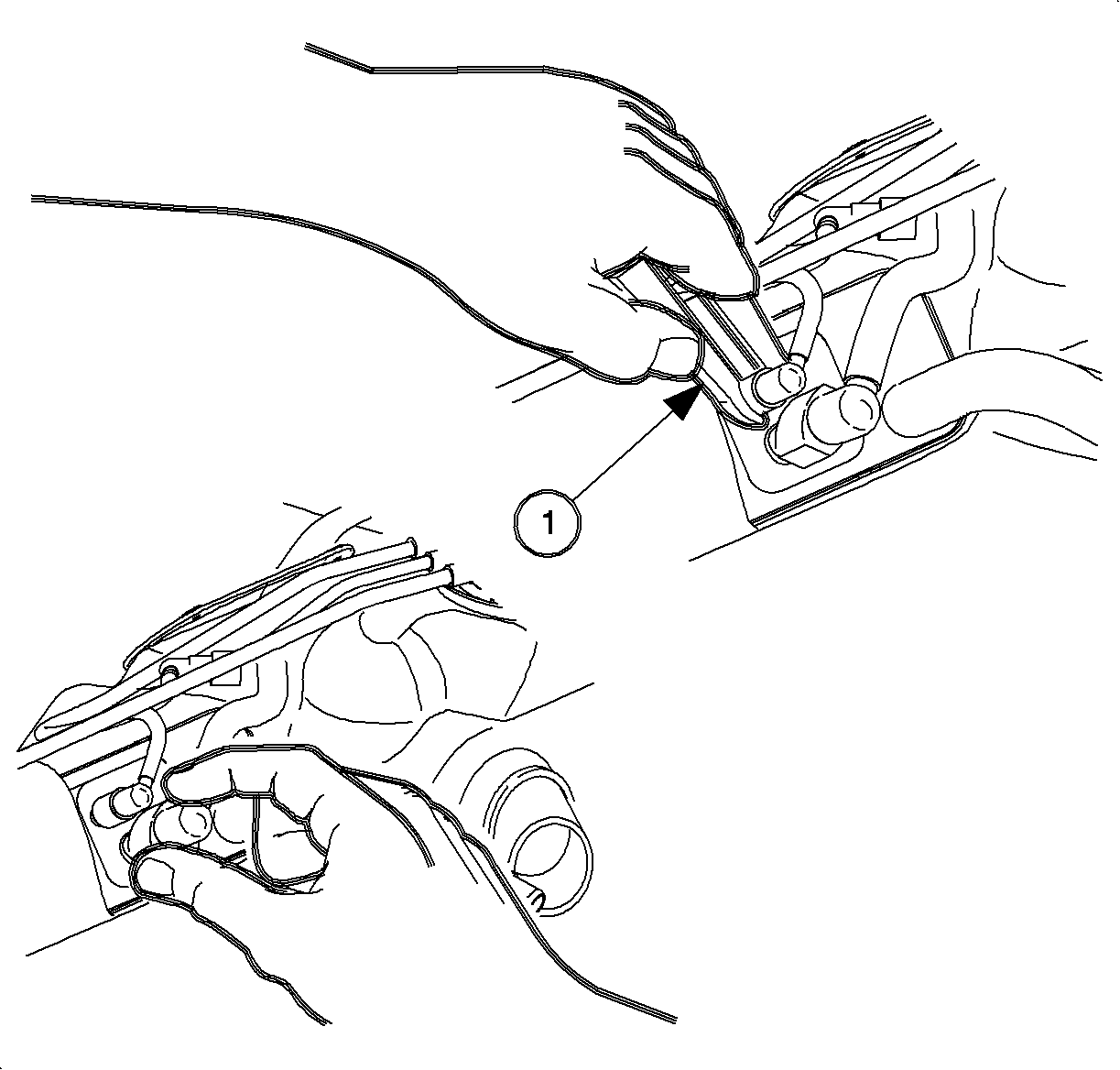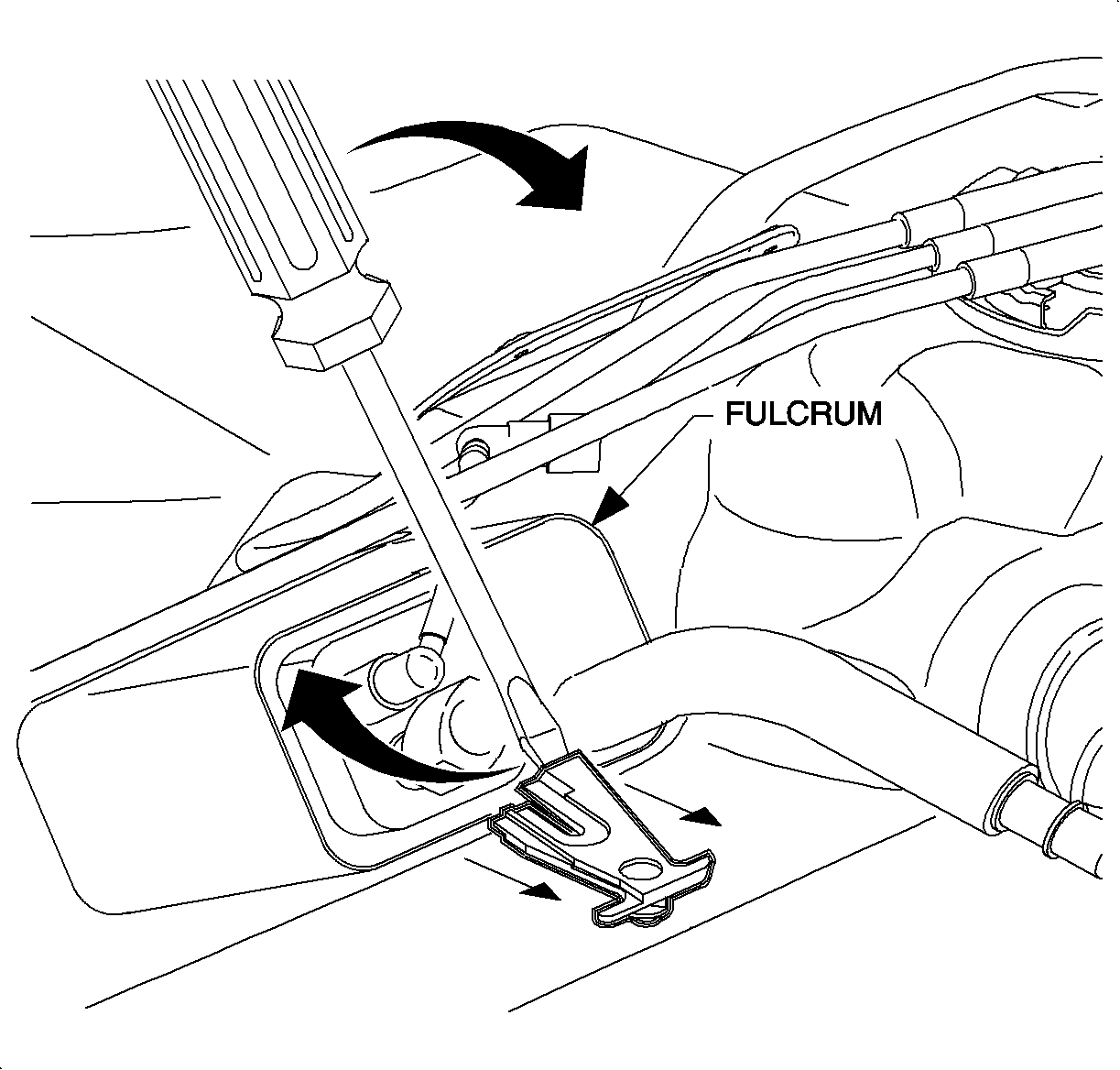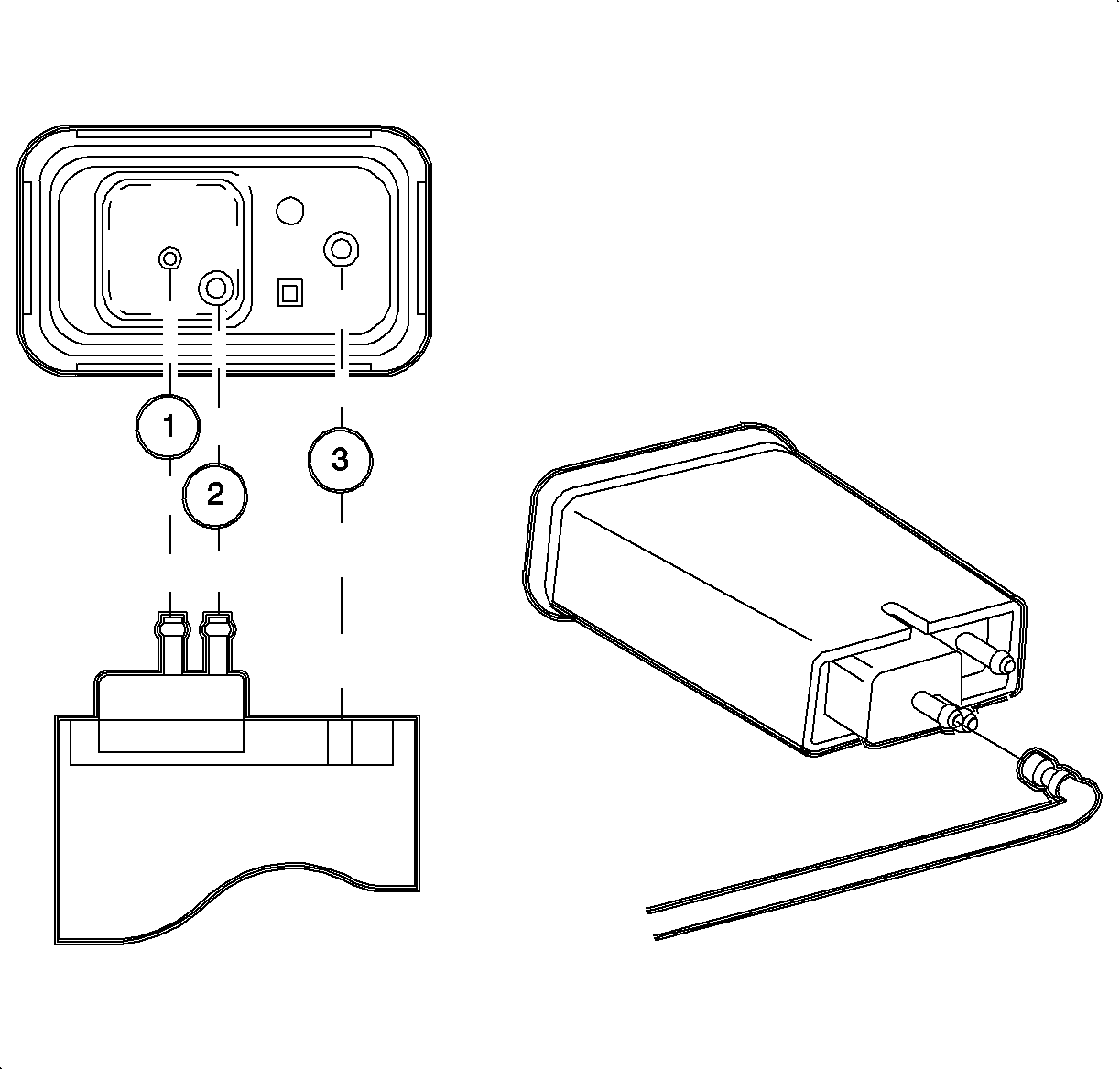For 1990-2009 cars only
Special Tools
SA9805E Canister Purge Line Disconnect Tool
Removal Procedure
The EVAP emissions canister is located in a molded cavity on the top of the vehicle fuel tank.
- Remove the fuel filler pipe and fuel tank from the vehicle. Refer to Fuel Tank Replacement .
- Disconnect the 5/8-inch 90-degree fuel tank vapor inlet hose fitting from the canister.
- Remove the EVAP canister retainer clip at the upper end of the canister.
- Disconnect the 5/16-inch 90-degree fuel vapor/canister purge fitting from the canister. Use the SA9805E .
- Remove the canister from the fuel tank.


Installation Procedure
- Place the EVAP emissions canister in the pocket on the top fuel tank. Make sure that the canister vent hose is positioned towards the middle of the fuel tank.
- Install the canister retainer clip to the fuel tank, assuring that the clip is over the lower flange of the canister before snapping the clip into the locked position.
- Install the 90-degree 5/16-inch purge line fitting (1) to the purge port on the canister.
- Install the 90-degree 5/8-inch vapor line fitting (2) to the tank port on the canister.
- Install the fuel tank and fuel filler pipe. Refer to Fuel Tank Replacement .
- Perform the Service Bay Diagnostic Test for the evaporative emission system using the Tech-2. This test will verify the integrity of the vapor handling areas of the fuel system. Refer to Service Stall System (SSS) user guide.
Important: If a replacement canister is being installed, make sure that the vent hose is installed on the canister prior to installation on the fuel tank. Orient the molded vent hose on the canister so that when it is installed on the fuel tank the "S" bend will be pointing down.

Important: Install the retainer for the purge fitting quick connect into the female portion of the connector. Care must be taken to assure that the locking tab is centered in the window of the female connector.
